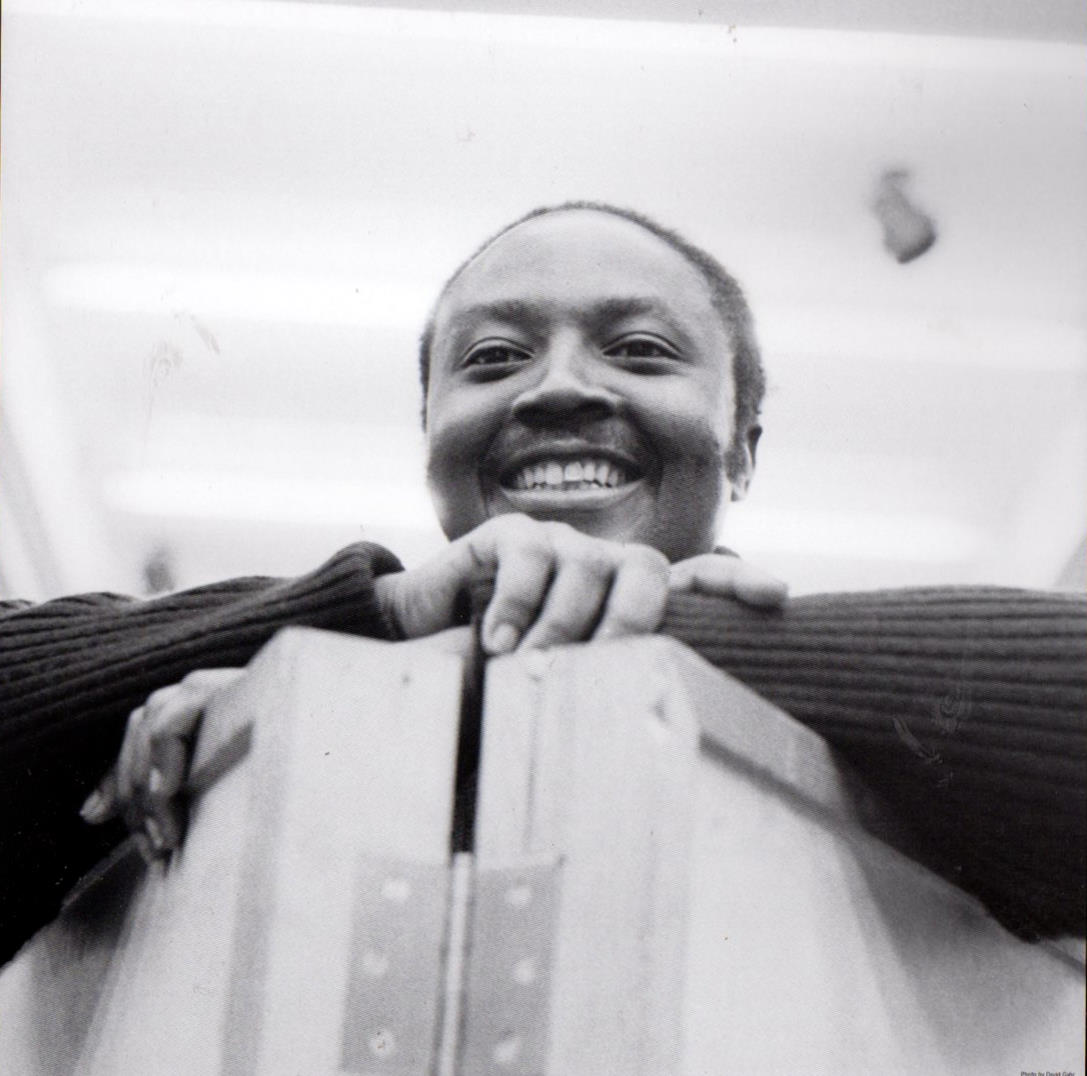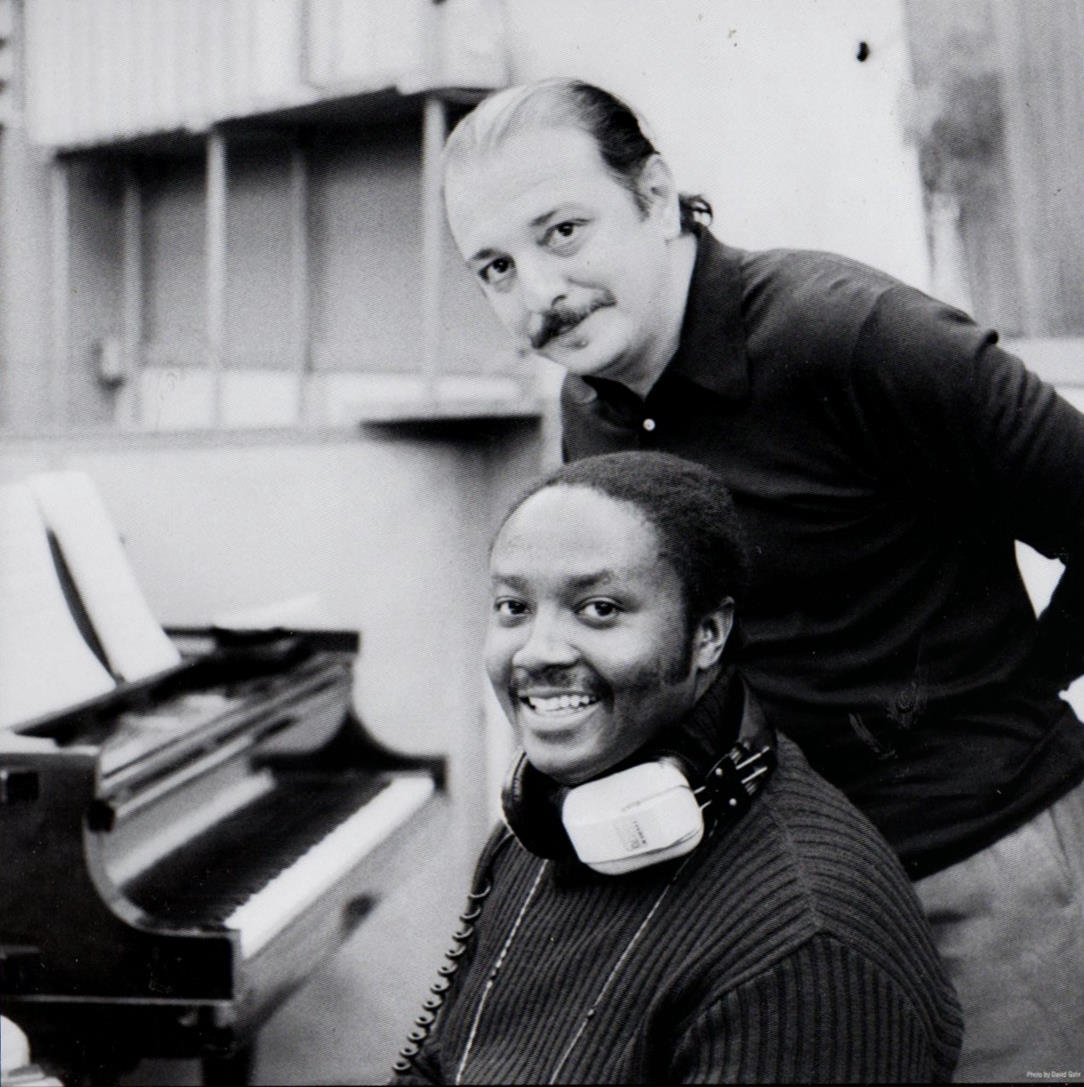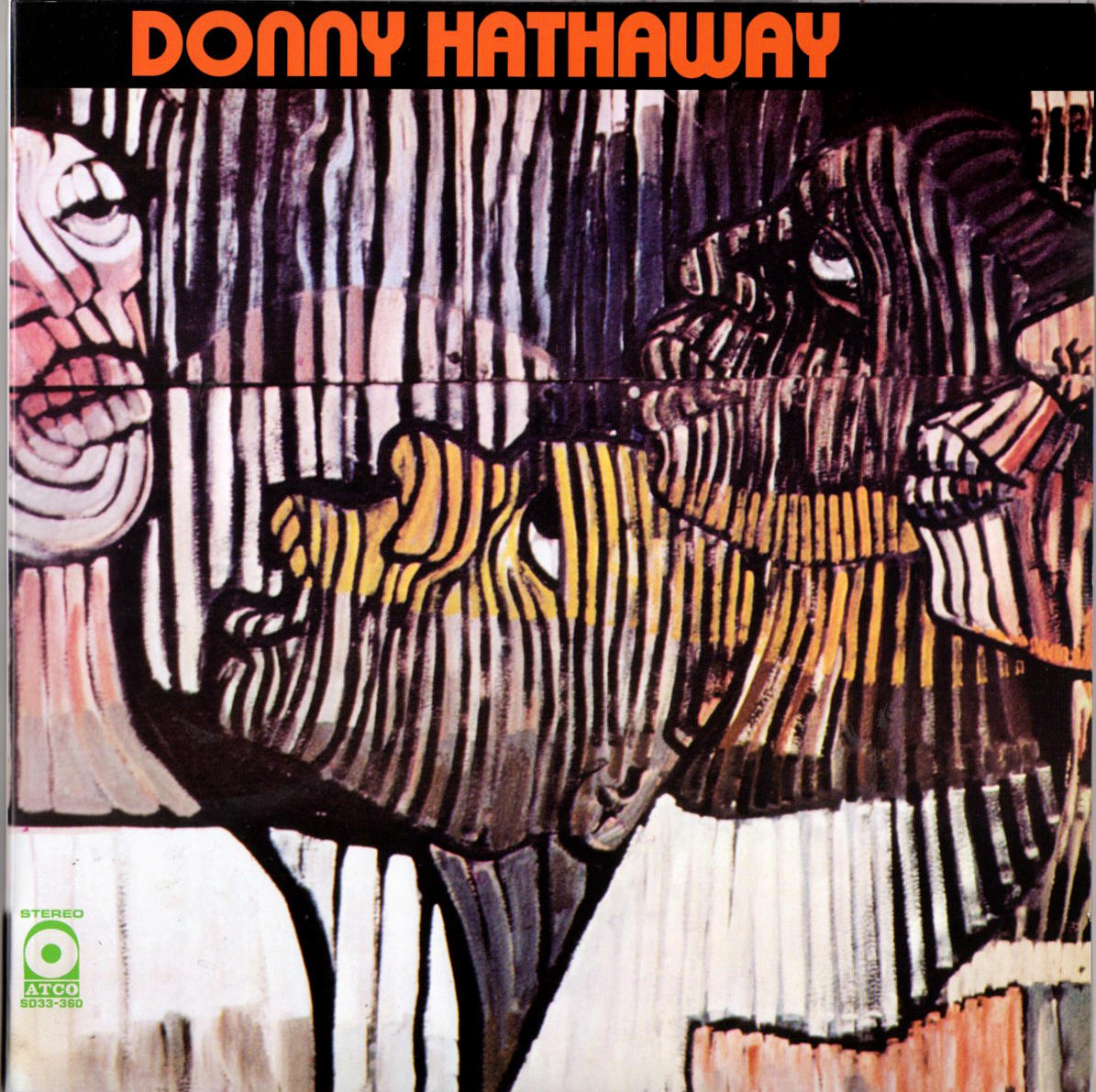Donny Hathaway's Self-Titled Second LP
Reissued at 45 rpm in Atlantic 75 series
1971 was a pivotal year for R&B/soul music. Stevie Wonder's Where I'm Coming From was released in April. Marvin Gaye's What's Going On was released in May. Maggot Brain by Funkadelic was released in July, Curtis Mayfield's Curtis in September, and Sly's There's a Riot Goin’ On in November. All of these albums were entirely composed of original music and expressed the disappointment, despair, and anger of young Black people living in a post 1960s civil rights movement, post Martin Luther King assassination, still mired in Viet Nam America, which was doing little to ameliorate continuing poverty and racism.
Donny Hathaway's second album, simply entitled Donny Hathaway, released in April 1971 is not an album of that time, but is instead part of an earlier, already past time when albums were collections of singles and filler and the great R&B/Soul singers like, Sam Cooke, Jackie Wilson and Ray Charles didn't write all their own material but covered lots of R&B and pop songs. Hathaway only co-wrote one of the nine tunes. All the rest are covers, devoid of autobiography or any explicit political comment, and nearly half of them are middle of the road, easy listening, white bread, long forgotten, soulless dreck, top 40 pop tunes that were also covered by artists like Anne Murray, Helen Reddy, Wayne Newton, Perry Como and Liza Minelli.
So, why did a twenty-five year old Black singer, a gospel prodigy, an R&B /Soul record producer and arranger who had already released one moderately successful album of his own, containing "The Ghetto", a funky groove tune he co-wrote which peaked at #23 on the R&B chart, record a follow up of love songs and cheesy pop tunes without one song commenting on Black life or even a funky, dance tune? Probably, because Hathaway was seeking the huge, crossover to pop success, which he achieved the following year when he recorded with Roberta Flack, a similar mixture of contemporary pop and R&B ballads.
Donny Hathaway is not the personal artistic expression the title seems to promise but rather a calculated commercial attempt. It should reek of fakery and "catering to the white people" artifice and be very bad. But it's not because Donny Hathaway was one of the greatest singers in 20th century Black American music. A singer with such enormous vocal technique and deep gospel passion that he could sing any song and, with the sheer intensity of his belief in it, convince the listener that it was a good song or even a great one. When he sang, no words were ever more true, no emotion more real. 
On Donny Hathaway, he transforms the ersatz gospel "Put Your Hand In The Hand," the silly "Magnificent Sanctuary Band," and the treacly "I Believe In Music" from vacuous sing along pop to bottom of his soul "this may be my last time singing" statements of belief in a better world somewhere. After hearing him sing these songs, the listener marvels at how much he has done with such unpromising material.
When Hathaway did sing classic songs, and there are two of them on Donny Hathaway, he was magnificent, frequently unsurpassed. The album begins with "Giving Up," a song that had been a pop and R&B hit for the great Gladys Knight in 1964. Only someone with the vocal chops of Donny Hathaway would have the confidence to cover a Gladys Knight hit. His version rachets up the emotion to dark, obsessive intensity. Hathaway was a talented arranger, and the brilliant, dramatic arrangement is his own. The Gladys Knight version had a "slow dance" beat, but he slows the tempo even more to a persistent, near oppressive 4/4 and, over harsh slashing strings, wrings emotion out of the despairing lyrics with ever increasing intensity, until there is the anguished, wail of a King Curtis sax solo. After it, Hathaway, barely refraining from James Brown, speaking in tongues, pleading, begs for another chance over implacable strings and horns. It's six and a half minutes of soul drama.
Leon Russell's "A Song For You" is an all time classic song, a wonderful melding of a simple, attractive melody and heartfelt lyrics. It had already been an FM hit for Russell and a pop hit for Andy Williams. It's been covered hundreds of times, usually performed with a wistful, melancholy feeling as the singer sings the very song you are hearing to a former lover, begging forgiveness and pledging love for life.
It's a passionate love song that Hathaway transforms into a passionate gospel song, a statement of faith, masquerading as a love song. Instead of "singing this song for you," he changes the words to "singing this song to you," and the line "You taught me precious secrets of the truth" becomes, "You taught me precious secrets of a true love." Hathaway's vocal is a straight out of the church, testifying, soul baring masterpiece. Few love songs have ever been sung with this much honesty, intimacy, and passion.
The rest of the tunes are well crafted pop/R&B but bland and obviously aimed at the charts. "Little Girl," a Billy Preston song, is given a slow burning, bluesy treatment that gets into a funky groove on the ride out. There's a great Hathaway organ solo and a soulful "talking to my woman" vocal featuring some beautiful falsetto.
Hathaway does "He Ain't Heavy, He's My Brother" like a secular gospel song the way The Staples Singers were doing similar material and even throws in a "Thank you Lord." Most versions of this song overdo the sentimentality and become cloying but Hathaway injects some grit and makes clear that caring for one's brother is not easy. His vocal is a simply astonishing deep soul/gospel masterpiece that must be heard to be believed.

"She Is My Lady," written by George Clinton has an Arif Mardin arrangement that is a bit too busy and dramatic for an ultra romantic love ballad. On the verses, Hathaway cools his usual intensity to sound a bit like Marvin Gaye and then goes full out wailing on the choruses.
"Take A Love Song," co-written by Hathaway, is another secular gospel song extolling the power of love and a positive attitude. His vocal begins restrained and conversational, but by the end, he takes it to church and is preaching over the chorus.
Donny Hathaway is not a classic album. Like much of the later works of Hathaway’s peers, the supremely talented singer-pianists Nat King Cole and Ray Charles, many of the songs are not worthy of the singer's talents. It's mostly an album of schmaltzy and mediocre songs sung with gospel fervor by an extraordinarily talented singer. Other than "Givin' Up” and "A Song For You," one listens to the singer, not the song.
Analogue Productions has reissued Donny Hathaway as part of the Atlantic 75 Series on two 12 inch 180 gram records at 45 rpm pressed at Quality Record Pressings. The records come in a double pocket, tip on style Stoughton Printing jacket. On the back cover is printed "100% All-Analog… Mastered and cut to lacquer from the original master tape." The mastering engineer is not listed on the cover or the AP website.
My LPs, #1067 of the limited edition, are deep black, lustrous flawless and play very quietly. The labels are a close approximation of the original Atco label. The original LP had a single pocket jacket. For this issue, AP has included two black and white photos of Hathaway, one with Arif Mardin, inside the gatefold. The cover is beautifully printed and the jacket is heavy cardboard stock.
The original issue of Donny Hathaway is not an audiophile classic. The recording quality is typical of early 1970s major label pop/rock/R&B LPs; that is to say, it is good but falls short of great in all the sonic categories. Soundstage is wide but not especially deep. The treble is not muffled but is a bit thin and hard. Bass is moderately deep but lacks impact. Dynamic range is acceptable but not particularly wide. The thin, slightly hazy sound of Atlantic's vinyl from the period also adds a "copy tape," "worn stamper" dullness to the sound.
AP's Atlantic 75 reissue is a major sonic upgrade across the board. The increase in dynamic range is especially noticeable and adds extra intensity, orchestral power, and drama to "Givin' Up" and the big finale of "She Is My Lady." In the intro to "Magnificent Sanctuary Band," the bass drum moves air while the handclaps crack out and fade immediately to silence. The low noise of the high quality vinyl, superbly pressed, creates more space between the instruments and a slightly deeper, wider soundstage. Most importantly, Hathaway's voice is smoother, more dynamic, and warm. The last beautiful high notes that he sings on "to yo…..oo…oouuu" at the end of "A Song For You" actually go higher on the Atlantic 75 after the point they fade into the surface noise on the original press.
Analogue Productions has done a superb reissue of Donny Hathaway. The album sounds significantly better than it ever has, no doubt about it, even on a modest system. I hope that Hathaway's follow up album, 1972's Live, which is an album of classic music as well as an audiophile classic, is upcoming on the Atlantic 75 schedule.
Copyright and all rights reserved by Joseph W Washek 2025










































.png)








